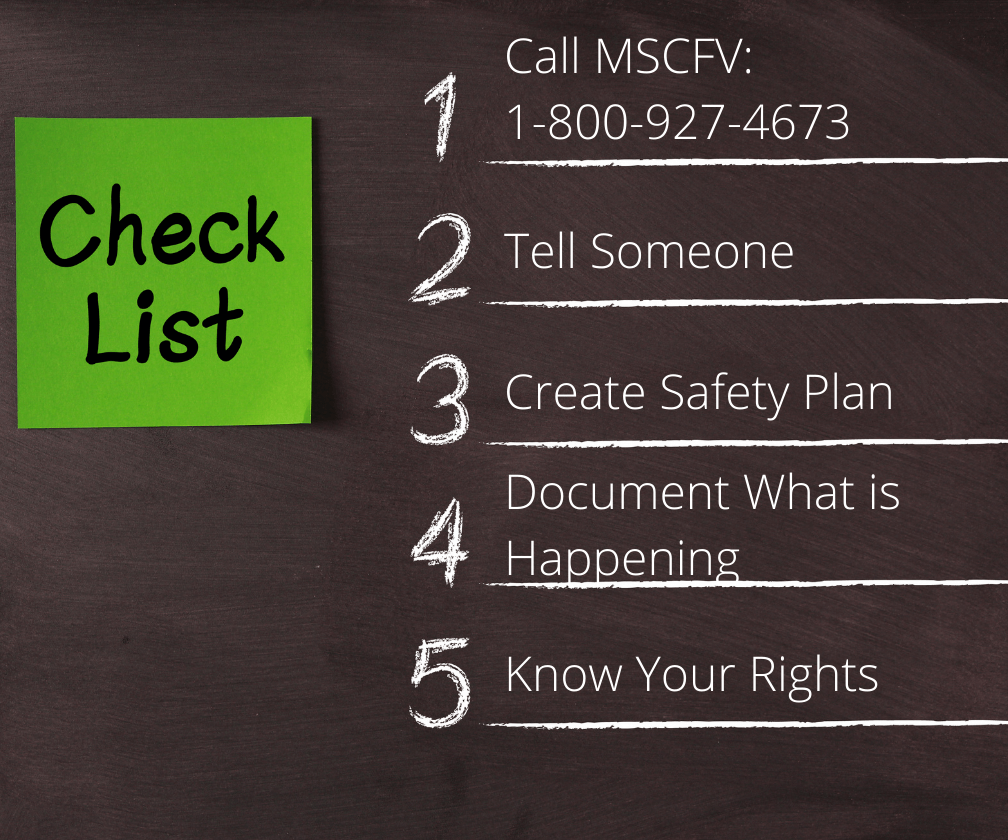A Safety Plan helps victims of abuse increase their safety while in an abusive relationship, planning to leave, in the process of leaving, and leaving. Safety plans are created to meet the unique situation of each victim. The plans address important steps for staying as safe as possible, including: how to let others know you need help, documentation, legal options, how to protect children and pets, self-health, how to deal with the mental and emotional challenges of leaving an abusive relationship, and more.

Safety Planning does not need to be overwhelming, and victims do not need to do it alone. The MSCFV team will help victims create their plan and will work with them every step of the way, if that is what the victim wants. If you want help creating your safety plan, call us anytime at 1-800-927-HOPE (4673) or start a Chat with us through this website.
Things to consider as you create your safety plan:
While it is good to have this documentation, please don’t stay with your abuser just because you don’t have these documents. MSCFV can help you with or without these papers.
You do not have to create a Safety Plan by yourself. And while it is recommended to have a Safety Plan, not having any or all of these items does not mean that you should stay with your abuser. Safety Planning is one of many ways we can help you, including emergency shelter, free legal services, mental health care, housing and housing supports, food and supplies, and more. Contact us at 1-800-927-4673 (HOPE) or through the CHAT feature on this website.
If you are not ready to give us a call but would like more information on Safety Planning, the National Domestic Violence Hotline has some great information at https://www.thehotline.org/what-is-a-safety-plan/